Piano Sheet Music
 "When I joined the trio, it was as if I was capable of driving a sports car at 60, but Ray Brown and Oscar Peterson just kept pressing the pedal down, and I was trying to control the car at 80!" Barney Kessel - Jazz Guitar
"When I joined the trio, it was as if I was capable of driving a sports car at 60, but Ray Brown and Oscar Peterson just kept pressing the pedal down, and I was trying to control the car at 80!" Barney Kessel - Jazz Guitar
Daft Punk

Daft Punk is an electronic music duo consisting of French musicians Guy-Manuel de Homem-Christo (born February 8, 1974) and Thomas Bangalter (born January 3, 1975). Daft Punk reached significant popularity in the late 1990s house movement in France and met with continued success in the years following, combining elements of house with synthpop. The duo is also credited with producing songs that are considered essential in the French house scene. They were managed from 1996 to 2008 by Pedro Winter (Busy P), the head of Ed Banger Records. Early in the group's career, the band members were strongly influenced by groups such as The Beach Boys and The Rolling Stones. Bangalter and de Homem-Christo were originally in a band called Darlin', which disbanded after a short period of time, leaving the two to experiment musically on their own.
The duo became Daft Punk, and released their critically acclaimed debut album Homework in 1997. The 2001 release Discovery was even more successful, driven by the club singles "One More Time", "Digital Love" and "Harder, Better, Faster, Stronger". In March 2005, the duo released the album Human After All to mixed reviews. However, the singles "Robot Rock" and "Technologic" achieved success in the United Kingdom. Daft Punk toured throughout 2006 and 2007 and released the live album Alive 2007, which won a Grammy award for Best Electronic/Dance Album. The duo composed the score of the film Tron: Legacy and in 2010 released the soundtrack album of the film. Daft Punk are noted for their elaborate live shows, in which visual elements and effects are incorporated with the music. The group is also known for its emphasis on visual and story components associated with their musical productions, as well as for wearing disguises, most notably, ornate robot costumes in public and while performing.
The duo became Daft Punk, and released their critically acclaimed debut album Homework in 1997. The 2001 release Discovery was even more successful, driven by the club singles "One More Time", "Digital Love" and "Harder, Better, Faster, Stronger". In March 2005, the duo released the album Human After All to mixed reviews. However, the singles "Robot Rock" and "Technologic" achieved success in the United Kingdom. Daft Punk toured throughout 2006 and 2007 and released the live album Alive 2007, which won a Grammy award for Best Electronic/Dance Album. The duo composed the score of the film Tron: Legacy and in 2010 released the soundtrack album of the film. Daft Punk are noted for their elaborate live shows, in which visual elements and effects are incorporated with the music. The group is also known for its emphasis on visual and story components associated with their musical productions, as well as for wearing disguises, most notably, ornate robot costumes in public and while performing.
Andy Williams

Howard Andrew "Andy" Williams (born December 3, 1927) is an American pop singer. Andy Williams has recorded 18 Gold and three Platinum certified albums. When Ronald Reagan was president, he declared Andy's voice to be "a national treasure". He had his own popular TV variety show from 1962–71. He also owns his own theater, the Moon River Theatre in Branson, Missouri.
Williams' solo career began in 1952 after his brothers left the act. He recorded six sides for RCA Victor's label "X," but none of them were popular hits.
After finally landing a spot as a regular on Steve Allen's Tonight Show in 1955, he was signed to a recording contract with Cadence Records, a small label in New York run by conductor Archie Bleyer. His third single, "Canadian Sunset" (1956) hit the Top Ten, and was soon followed by his only Billboard #1 hit, "Butterfly" (a cover of a Charlie Gracie record on which Williams imitated Elvis Presley). More hits followed, including "The Hawaiian Wedding Song" (U.S. #11), "Are You Sincere" (U.S. #3), "The Village of St. Bernadette" (U.S. #7), "Lonely Street" (U.S. #5), and "I Like Your Kind Of Love" (U.S. #8) before Williams moved to Columbia Records in 1961, having moved from New York to Los Angeles and gaining another hit with "Can't Get Used to Losing You" (U.S. #2). In terms of chart popularity, the Cadence era was Williams' peak although songs he introduced on Columbia became much bigger standards.
During the 1960s, Williams became one of the most popular vocalists in the country and was signed to what was at that time the biggest recording contract in history. He was primarily an album artist, and at one time he had earned more gold albums than any solo performer except Frank Sinatra, Johnny Mathis and Elvis Presley. By 1973 he had earned as many as 18 gold album awards. Among his hit albums from this period were Moon River, Days of Wine and Roses (number one for 16 weeks in mid-1963), The Andy Williams Christmas Album, Dear Heart, The Shadow of Your Smile, Love, Andy, Get Together with Andy Williams, and Love Story. These recordings, along with his natural affinity for the music of the 1960s and early 1970s, combined to make him one of the premier easy listening singers of that era. In the UK, Williams continued to reach high chart status until 1978. The albums Can't Help Falling In Love (1970), Andy Williams Show (1970) Home Lovin Man ( #1 1971), Solitaire (1973), The Way We Were (1974) and Reflections (1978) all reached the Top 10.
Building on his experience with Allen and some short-term variety shows in the 1950s, he became the star of his own weekly television variety show in 1962. This series, The Andy Williams Show, won three Emmy Awards for outstanding variety program. Among his series regulars were the Osmond Brothers. He gave up the variety show in 1971 while it was still popular and retrenched to three specials per year. His Christmas specials, which appeared regularly until 1974 and intermittently from 1982 into the 1990s, were among the most popular of the genre. Williams has recorded eight Christmas albums over the years and has been penned as Mr. Christmas.
Williams hosted the most Grammy telecasts, from the 13th Annual Grammy Awards in 1971 through the 19th Annual Grammy Awards in 1977, totaling seven consecutive shows. He returned to television to do a syndicated half-hour series in 1976–77.
Williams' solo career began in 1952 after his brothers left the act. He recorded six sides for RCA Victor's label "X," but none of them were popular hits.
After finally landing a spot as a regular on Steve Allen's Tonight Show in 1955, he was signed to a recording contract with Cadence Records, a small label in New York run by conductor Archie Bleyer. His third single, "Canadian Sunset" (1956) hit the Top Ten, and was soon followed by his only Billboard #1 hit, "Butterfly" (a cover of a Charlie Gracie record on which Williams imitated Elvis Presley). More hits followed, including "The Hawaiian Wedding Song" (U.S. #11), "Are You Sincere" (U.S. #3), "The Village of St. Bernadette" (U.S. #7), "Lonely Street" (U.S. #5), and "I Like Your Kind Of Love" (U.S. #8) before Williams moved to Columbia Records in 1961, having moved from New York to Los Angeles and gaining another hit with "Can't Get Used to Losing You" (U.S. #2). In terms of chart popularity, the Cadence era was Williams' peak although songs he introduced on Columbia became much bigger standards.
During the 1960s, Williams became one of the most popular vocalists in the country and was signed to what was at that time the biggest recording contract in history. He was primarily an album artist, and at one time he had earned more gold albums than any solo performer except Frank Sinatra, Johnny Mathis and Elvis Presley. By 1973 he had earned as many as 18 gold album awards. Among his hit albums from this period were Moon River, Days of Wine and Roses (number one for 16 weeks in mid-1963), The Andy Williams Christmas Album, Dear Heart, The Shadow of Your Smile, Love, Andy, Get Together with Andy Williams, and Love Story. These recordings, along with his natural affinity for the music of the 1960s and early 1970s, combined to make him one of the premier easy listening singers of that era. In the UK, Williams continued to reach high chart status until 1978. The albums Can't Help Falling In Love (1970), Andy Williams Show (1970) Home Lovin Man ( #1 1971), Solitaire (1973), The Way We Were (1974) and Reflections (1978) all reached the Top 10.
Building on his experience with Allen and some short-term variety shows in the 1950s, he became the star of his own weekly television variety show in 1962. This series, The Andy Williams Show, won three Emmy Awards for outstanding variety program. Among his series regulars were the Osmond Brothers. He gave up the variety show in 1971 while it was still popular and retrenched to three specials per year. His Christmas specials, which appeared regularly until 1974 and intermittently from 1982 into the 1990s, were among the most popular of the genre. Williams has recorded eight Christmas albums over the years and has been penned as Mr. Christmas.
Williams hosted the most Grammy telecasts, from the 13th Annual Grammy Awards in 1971 through the 19th Annual Grammy Awards in 1977, totaling seven consecutive shows. He returned to television to do a syndicated half-hour series in 1976–77.
Debussy

Achille-Claude Debussy (August 22, 1862 – March 25, 1918) was a French composer. Along with Maurice Ravel, he is considered one of the most prominent figures working within the field of Impressionist music, though he himself intensely disliked the term when applied to his compositions. Debussy was not only among the most important of all French composers but also was a central figure in all European music at the turn of the twentieth century.
Debussy's music virtually defines the transition from late-Romantic music to twentieth century modernist music. In French literary circles, the style of this period was known as Symbolism, a movement that directly inspired Debussy both as a composer and as an active cultural participant.
Debussy's music virtually defines the transition from late-Romantic music to twentieth century modernist music. In French literary circles, the style of this period was known as Symbolism, a movement that directly inspired Debussy both as a composer and as an active cultural participant.
The Who

The Who are an English rock band formed in 1964. The primary lineup consisted of vocalist Roger Daltrey, guitarist Pete Townshend, bassist John Entwistle, and drummer Keith Moon. They became known for energetic live performances including the pioneering spectacle of instrument destruction. The Who have sold about 100 million records and have charted 27 top forty singles in the United Kingdom and United States with 17 top ten albums, including 18 Gold, 12 Platinum and 5 Multi-Platinum album awards in the United States alone.
The Who rose to fame in the UK with a series of top ten hit singles, boosted in part by pirate radio stations such as Radio Caroline, beginning in January 1965 with "I Can't Explain". The albums My Generation (1965), A Quick One (1966) and The Who Sell Out (1967) followed, with the first two hitting the UK top five. They first hit the U.S. Top 40 in 1967 with "Happy Jack" and hit the top ten later that year with "I Can See for Miles". Their fame grew with memorable performances at the Monterey Pop and Woodstock music festivals. The 1969 release of Tommy was the first in a series of top ten albums in the U.S., followed by Live at Leeds (1970), Who's Next (1971), Quadrophenia (1973), The Who By Numbers (1975), Who Are You (1978) and The Kids Are Alright (1979).
Moon died at the age of 32 in 1978, after which the band released two studio albums, the UK and U.S. top five Face Dances (1981) and the U.S. top ten It's Hard (1982), with drummer Kenney Jones, before disbanding in 1983. They re-formed at events such as Live Aid and for reunion tours such as their 25th anniversary tour (1989) and the Quadrophenia tours of 1996 and 1997. In 2000, the three surviving original members discussed recording an album of new material, but their plans temporarily stalled upon Entwistle's death at the age of 57 in 2002. Townshend and Daltrey continue to perform as The Who, and in 2006 they released the studio album Endless Wire, which reached the top ten in the UK and U.S.
The Who were inducted into the Rock and Roll Hall of Fame in 1990, their first year of eligibility. Their display there describes them as "Prime contenders, in the minds of many, for the title of World's Greatest Rock Band." The Los Angeles Times wrote that during their tenure as a quartet, the band "rivaled The Beatles, Bob Dylan and The Rolling Stones as the most vital rock voice of youth." Time Magazine wrote in 1979 that "No other group has ever pushed rock so far, or asked so much from it." They received a Lifetime Achievement Award from the British Phonographic Industry in 1988, and from the Grammy Foundation in 2001. In 2008 surviving members Townshend and Daltrey were honoured at the 31st Annual Kennedy Center Honors.
The Who rose to fame in the UK with a series of top ten hit singles, boosted in part by pirate radio stations such as Radio Caroline, beginning in January 1965 with "I Can't Explain". The albums My Generation (1965), A Quick One (1966) and The Who Sell Out (1967) followed, with the first two hitting the UK top five. They first hit the U.S. Top 40 in 1967 with "Happy Jack" and hit the top ten later that year with "I Can See for Miles". Their fame grew with memorable performances at the Monterey Pop and Woodstock music festivals. The 1969 release of Tommy was the first in a series of top ten albums in the U.S., followed by Live at Leeds (1970), Who's Next (1971), Quadrophenia (1973), The Who By Numbers (1975), Who Are You (1978) and The Kids Are Alright (1979).
Moon died at the age of 32 in 1978, after which the band released two studio albums, the UK and U.S. top five Face Dances (1981) and the U.S. top ten It's Hard (1982), with drummer Kenney Jones, before disbanding in 1983. They re-formed at events such as Live Aid and for reunion tours such as their 25th anniversary tour (1989) and the Quadrophenia tours of 1996 and 1997. In 2000, the three surviving original members discussed recording an album of new material, but their plans temporarily stalled upon Entwistle's death at the age of 57 in 2002. Townshend and Daltrey continue to perform as The Who, and in 2006 they released the studio album Endless Wire, which reached the top ten in the UK and U.S.
The Who were inducted into the Rock and Roll Hall of Fame in 1990, their first year of eligibility. Their display there describes them as "Prime contenders, in the minds of many, for the title of World's Greatest Rock Band." The Los Angeles Times wrote that during their tenure as a quartet, the band "rivaled The Beatles, Bob Dylan and The Rolling Stones as the most vital rock voice of youth." Time Magazine wrote in 1979 that "No other group has ever pushed rock so far, or asked so much from it." They received a Lifetime Achievement Award from the British Phonographic Industry in 1988, and from the Grammy Foundation in 2001. In 2008 surviving members Townshend and Daltrey were honoured at the 31st Annual Kennedy Center Honors.
HUGO ALFVEN
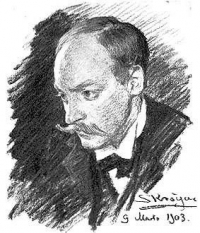
Hugo Emil Alfvén (Swedish: (About this soundlisten); 1 May 1872 – 8 May 1960) was a Swedish composer, conductor, violinist, and painter.Alfvén was born in Stockholm, Sweden, and studied at the Royal College of Music (Kungliga Musikhögskolan) from 1887 to 1891 with the violin as his main instrument while receiving lessons from Lars Zetterquist. He also took private composition lessons from Johan Lindegren, a leading counterpoint expert. He earned a living by playing the violin at the Royal Opera in Stockholm. He also played the violin in the Royal Swedish Orchestra.
Guilherme Schroeter
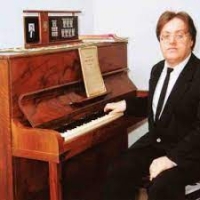
Guilherme Schroeter was born May 16, 1960 in Rio de Janeiro, Brazil, from a traditional family of Musicians: his mother, a pianist; his father, a violinist; his brother, a violinist; and his aunt, Olga Maria Schroeter, a famous opera singer.Guilherme began his studies at seven years of age with his mother in 1967. Guilherme's mother, by her devotion to music and the piano, inspired Guilherme to begin practicing the piano and also to create his first compositions. At 7, Guilherme was able to give brief performances, and four years later in 1971, at the age of 11, his first composition was performed. The composition is A Celebration for Christmas, composed for a trio of musicians.
Creedence Clearwater Revival
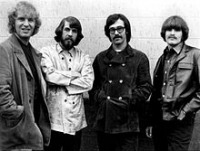
Creedence Clearwater Revival, also referred to as Creedence and CCR, was an American rock band that recorded and performed from 1959 to 1972 under various names before settling on the Creedence Clearwater Revival name in 1967. The band initially consisted of lead vocalist, lead guitarist, and primary songwriter John Fogerty; his brother, rhythm guitarist Tom Fogerty; bassist Stu Cook; and drummer Doug Clifford. These members had played together since 1959, first as the Blue Velvets and later as the Golliwogs.
Claude Bolling
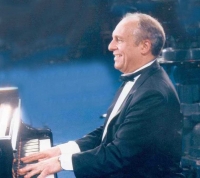
Claude Bolling (born 10 April 1930), is a renowned French jazz pianist, composer, arranger, and occasional actor.
He was born in Cannes, studied at the Nice Conservatory, then in Paris. A child prodigy, by age 14 he was playing jazz piano professionally, with Lionel Hampton, Roy Eldridge, and Kenny Clarke. Bolling's books on jazz technique show that he did not delve far beyond bebop into much avant garde jazz. He was a major part of the traditional jazz revival in the late 1960s, and he became friends with Oscar Peterson.
He has written music for over one hundred films, mostly French, starting with the score for a 1957 documentary about the Cannes Film Festival, and including the films Borsalino (1970), and California Suite (1978).
Bolling is also noted for a series of "crossover" collaborations with classical musicians. His Suite for Flute and Jazz Piano Trio with Jean-Pierre Rampal, a mix of Baroque elegance with modern swing, has been a top seller for many years, and was followed up by other works in the same vein. It was particularly popular in the United States, at the top of the hit parade for two years after its release and on billboard top 40 for 530 weeks, roughly ten years.
Following his work with Rampal, Bolling went on to work with many other musicians, from different genres, including Alexandre Lagoya, Pinchas Zukerman, Maurice André, and Yo-Yo Ma. He has also worked with, and performed tributes to many others, including Lionel Hampton, Duke Ellington, Stéphane Grappelli, Django Reinhardt, Oscar Peterson.
He was born in Cannes, studied at the Nice Conservatory, then in Paris. A child prodigy, by age 14 he was playing jazz piano professionally, with Lionel Hampton, Roy Eldridge, and Kenny Clarke. Bolling's books on jazz technique show that he did not delve far beyond bebop into much avant garde jazz. He was a major part of the traditional jazz revival in the late 1960s, and he became friends with Oscar Peterson.
He has written music for over one hundred films, mostly French, starting with the score for a 1957 documentary about the Cannes Film Festival, and including the films Borsalino (1970), and California Suite (1978).
Bolling is also noted for a series of "crossover" collaborations with classical musicians. His Suite for Flute and Jazz Piano Trio with Jean-Pierre Rampal, a mix of Baroque elegance with modern swing, has been a top seller for many years, and was followed up by other works in the same vein. It was particularly popular in the United States, at the top of the hit parade for two years after its release and on billboard top 40 for 530 weeks, roughly ten years.
Following his work with Rampal, Bolling went on to work with many other musicians, from different genres, including Alexandre Lagoya, Pinchas Zukerman, Maurice André, and Yo-Yo Ma. He has also worked with, and performed tributes to many others, including Lionel Hampton, Duke Ellington, Stéphane Grappelli, Django Reinhardt, Oscar Peterson.
Antonin Dvorak

Antonín Leopold Dvořák (English pronunciation: /ˈdvɒrʒɑːk/ DVOR-zhahk or /ˈdvɒrʒæk/ DVOR-zhak; Czech: ( listen); September 8, 1841 – May 1, 1904) was a Czech composer of Romantic music, who employed the idioms of the folk music of Moravia and his native Bohemia. His works include operas, symphonic, choral and chamber music. His best-known works include his New World Symphony, the Slavonic Dances, "American" String Quartet, and Cello Concerto in B minor.
Dvořák wrote in a variety of forms: his nine symphonies generally stick to classical models that Beethoven would have recognised, but he also worked in the newly developed symphonic poem form and the influence of Richard Wagner is apparent in some works. Many of his works also show the influence of Czech folk music, both in terms of rhythms and melodic shapes; perhaps the best known examples are the two sets of Slavonic Dances. Dvořák also wrote operas (of which the best known is Rusalka); serenades for string orchestra and wind ensemble; chamber music (including a number of string quartets, and quintets); songs; choral music; and piano music.
Dvořák wrote in a variety of forms: his nine symphonies generally stick to classical models that Beethoven would have recognised, but he also worked in the newly developed symphonic poem form and the influence of Richard Wagner is apparent in some works. Many of his works also show the influence of Czech folk music, both in terms of rhythms and melodic shapes; perhaps the best known examples are the two sets of Slavonic Dances. Dvořák also wrote operas (of which the best known is Rusalka); serenades for string orchestra and wind ensemble; chamber music (including a number of string quartets, and quintets); songs; choral music; and piano music.
Enrique Granados
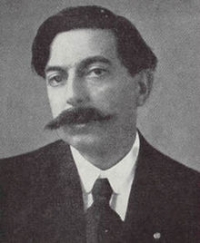
Enrique Granados y Campiña (27 July 1867 – 24 March 1916) was a Spanish Catalan pianist and composer of classical music. His music is in a uniquely Spanish style and, as such, representative of musical nationalism. Enrique Granados was also a talented painter in the style of Francisco Goya.
Granados wrote piano music, chamber music (a piano quintet, a piano trio, music for violin and piano), songs, zarzuelas, and an orchestral tone poem based on Dante's Divine Comedy. Many of his piano compositions have been transcribed for the classical guitar: examples include Dedicatoria, Danza No. 5, Goyescas.
Granados was an important influence on at least two other important Spanish composers and musicians, Manuel de Falla and Pablo Casals. He was also the teacher of composer Rosa García Ascot.
Granados wrote piano music, chamber music (a piano quintet, a piano trio, music for violin and piano), songs, zarzuelas, and an orchestral tone poem based on Dante's Divine Comedy. Many of his piano compositions have been transcribed for the classical guitar: examples include Dedicatoria, Danza No. 5, Goyescas.
Granados was an important influence on at least two other important Spanish composers and musicians, Manuel de Falla and Pablo Casals. He was also the teacher of composer Rosa García Ascot.
Tori Amos

Tori Amos (born Myra Ellen Amos on August 22, 1963) is a pianist and singer-songwriter of dual British and American citizenship. She is married to English sound engineer Mark Hawley, with whom she has one child, Natashya "Tash" Lórien Hawley, born on September 5, 2000.
Amos was at the forefront of a number of female singer-songwriters in the early 1990s and was noteworthy early in her career as one of the few alternative rock performers to use a piano as her primary instrument. She is known for emotionally intense songs that cover a wide range of subjects including sexuality, religion and personal tragedy. Some of her charting singles include "Crucify", "Silent All These Years", "Cornflake Girl", "Caught a Lite Sneeze", "Professional Widow", "Spark", and "A Sorta Fairytale".
Amos had sold 12 million records worldwide as of 2005 and has also enjoyed a large cult following. Having a history of making eccentric and at times ribald comments during concerts and interviews, she has earned a reputation for being highly idiosyncratic. As a social commentator and sometimes activist, some of the topics she has been most vocal about include feminism, religion, and sexuality.
Amos was at the forefront of a number of female singer-songwriters in the early 1990s and was noteworthy early in her career as one of the few alternative rock performers to use a piano as her primary instrument. She is known for emotionally intense songs that cover a wide range of subjects including sexuality, religion and personal tragedy. Some of her charting singles include "Crucify", "Silent All These Years", "Cornflake Girl", "Caught a Lite Sneeze", "Professional Widow", "Spark", and "A Sorta Fairytale".
Amos had sold 12 million records worldwide as of 2005 and has also enjoyed a large cult following. Having a history of making eccentric and at times ribald comments during concerts and interviews, she has earned a reputation for being highly idiosyncratic. As a social commentator and sometimes activist, some of the topics she has been most vocal about include feminism, religion, and sexuality.
Oasis
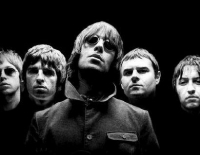
Oasis are an English rock band that formed in Manchester in 1991. The group was formed by Liam Gallagher (vocals), Paul Arthurs (guitar), Paul McGuigan (bass) and Tony McCarroll (drums), who were soon joined by Liam's older brother Noel Gallagher (lead guitar, lead vocals). Oasis have sold more than 50 million records worldwide, have had eight UK number-one singles and have collected 15 NME Awards, 5 Brit Awards and 9 Q awards. The Gallagher brothers are the band's leading songwriters and the only continual members. The present lineup is completed by guitarists Gem Archer and Andy Bell, as well as unofficial drummer Chris Sharrock.
The band initially gained prominence performing on the Manchester club circuit. They were signed to independent record label Creation Records and afterwards released their debut album Definitely Maybe in 1994. The following year, the band recorded (What's the Story) Morning Glory? (1995) with their new drummer Alan White, whilst rivaling with Britpop peers Blur in the charts. The Gallagher brothers were featured regularly in tabloid newspapers for their sibling rivalry and wild lifestyles, cultivating reputations both as bad boys and as a band of the people. At the height of their fame, Oasis released their third album, Be Here Now (1997). It became the fastest-selling album in UK chart history, but lost much of its long-term appeal after the initial hype and positive reception tempered. The band suffered a notable decline in popularity in America and lost three long-time members between recording and releasing Standing on the Shoulder of Giants (2000) and Heathen Chemistry (2002).
Their sixth album Don't Believe the Truth (2005), despite turbulent recording, became their best-selling and best-received album in a decade. The following year, the band released a compilation album entitled Stop the Clocks. In February 2007, Oasis received the BRIT Award for outstanding contribution to music. Dig Out Your Soul, the seventh studio album by the band, is set to be released on October 6, 2008, with the lead single from that album, "The Shock of the Lightning", set to be released on 29 September 2008.
The band initially gained prominence performing on the Manchester club circuit. They were signed to independent record label Creation Records and afterwards released their debut album Definitely Maybe in 1994. The following year, the band recorded (What's the Story) Morning Glory? (1995) with their new drummer Alan White, whilst rivaling with Britpop peers Blur in the charts. The Gallagher brothers were featured regularly in tabloid newspapers for their sibling rivalry and wild lifestyles, cultivating reputations both as bad boys and as a band of the people. At the height of their fame, Oasis released their third album, Be Here Now (1997). It became the fastest-selling album in UK chart history, but lost much of its long-term appeal after the initial hype and positive reception tempered. The band suffered a notable decline in popularity in America and lost three long-time members between recording and releasing Standing on the Shoulder of Giants (2000) and Heathen Chemistry (2002).
Their sixth album Don't Believe the Truth (2005), despite turbulent recording, became their best-selling and best-received album in a decade. The following year, the band released a compilation album entitled Stop the Clocks. In February 2007, Oasis received the BRIT Award for outstanding contribution to music. Dig Out Your Soul, the seventh studio album by the band, is set to be released on October 6, 2008, with the lead single from that album, "The Shock of the Lightning", set to be released on 29 September 2008.
Goo Goo Dolls

The Goo Goo Dolls are a rock band formed in 1986 in Buffalo, New York by John Rzeznik and Robby Takac.
The Goo Goo Dolls have announced recording sessions for a new album, on their official website, unrelated to their Volume Two in 2008. In addition, the band performed as part of the O2 Wireless Festival in London's Hyde Park this summer, at the Miller Lite Rock 'N Racing show at the Indianapolis Motor Speedway during qualifying for the 2008 Allstate 400 at the Brickyard NASCAR Sprint Cup Series race, as well as performing a four show tour across England.
On July 2, 2008, the Goo Goo Dolls released a new single called "Real" to select iTunes stores, while it was released on the AT&T USA Olympic Team soundtrack to the remaining iTunes stores on August 8, 2008, coinciding with the start of the 2008 Beijing Olympics.
Current members:
John Rzeznik - Lead vocals, guitar, backing vocals
Robby Takac - Backing vocals, bass guitar, lead vocals
Mike Malinin - Drums, percussion
The Goo Goo Dolls have announced recording sessions for a new album, on their official website, unrelated to their Volume Two in 2008. In addition, the band performed as part of the O2 Wireless Festival in London's Hyde Park this summer, at the Miller Lite Rock 'N Racing show at the Indianapolis Motor Speedway during qualifying for the 2008 Allstate 400 at the Brickyard NASCAR Sprint Cup Series race, as well as performing a four show tour across England.
On July 2, 2008, the Goo Goo Dolls released a new single called "Real" to select iTunes stores, while it was released on the AT&T USA Olympic Team soundtrack to the remaining iTunes stores on August 8, 2008, coinciding with the start of the 2008 Beijing Olympics.
Current members:
John Rzeznik - Lead vocals, guitar, backing vocals
Robby Takac - Backing vocals, bass guitar, lead vocals
Mike Malinin - Drums, percussion
Louis Armstrong
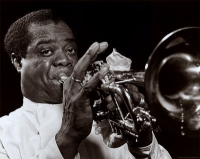
Louis Armstrong (4 August 1901 – July 6, 1971), nicknamed Satchmo or Sachimo and Pops, was an American jazz trumpeter and singer.
Coming to prominence in the 20s as an innovative cornet and trumpet virtuoso, Armstrong was a foundational influence on jazz, shifting the music's focus from collective improvisation to solo performers. With his distinctive gravelly voice, Armstrong was an influential singer, demonstrating great dexterity as an improviser, bending the lyrics and melody of a song for expressive purposes. He was also greatly skilled at scat singing, or wordless vocalizing.
Renowned for his charismatic stage presence, Armstrong's influence extended well beyond jazz, and by the end of his career in the '60s, he was widely regarded as a profound influence on popular music in general: critic Steve Leggett describes Armstrong as "perhaps the most important American musician of the 20th century."
Coming to prominence in the 20s as an innovative cornet and trumpet virtuoso, Armstrong was a foundational influence on jazz, shifting the music's focus from collective improvisation to solo performers. With his distinctive gravelly voice, Armstrong was an influential singer, demonstrating great dexterity as an improviser, bending the lyrics and melody of a song for expressive purposes. He was also greatly skilled at scat singing, or wordless vocalizing.
Renowned for his charismatic stage presence, Armstrong's influence extended well beyond jazz, and by the end of his career in the '60s, he was widely regarded as a profound influence on popular music in general: critic Steve Leggett describes Armstrong as "perhaps the most important American musician of the 20th century."
Elvis Presley

Elvis Aaron Presley (January 8, 1935–August 16, 1977, middle name sometimes written Aron)a was an American singer, musician and actor. A cultural icon, he is commonly referred to as the "The King of Rock 'n' Roll" or "The King".
In 1954, Presley began his career as the first performer of rockabilly, an uptempo fusion of country and rhythm and blues with a strong back beat. His novel versions of existing songs, mixing "black" and "white" sounds, made him popular—and controversial—as did his uninhibited stage and television performances. He recorded songs in the rock and roll genre, with tracks like "Hound Dog" and "Jailhouse Rock" later embodying the style. Presley had a versatile voice and had unusually wide success encompassing other genres, including gospel, blues, ballads and pop. To date, he has been inducted into four music halls of fame.
In the 1960s, Presley made the majority of his thirty-one movies—mainly poorly reviewed, but financially successful, musicals. In 1968, he returned with acclaim to live music in a television special, and thereafter performed across the U.S., notably in Las Vegas. Throughout his career, he set records for concert attendance, television ratings and recordings sales. He is one of the best-selling and most influential artists in the history of popular music. Health problems, drug dependency and other factors led to his premature death at age 42.
In 1954, Presley began his career as the first performer of rockabilly, an uptempo fusion of country and rhythm and blues with a strong back beat. His novel versions of existing songs, mixing "black" and "white" sounds, made him popular—and controversial—as did his uninhibited stage and television performances. He recorded songs in the rock and roll genre, with tracks like "Hound Dog" and "Jailhouse Rock" later embodying the style. Presley had a versatile voice and had unusually wide success encompassing other genres, including gospel, blues, ballads and pop. To date, he has been inducted into four music halls of fame.
In the 1960s, Presley made the majority of his thirty-one movies—mainly poorly reviewed, but financially successful, musicals. In 1968, he returned with acclaim to live music in a television special, and thereafter performed across the U.S., notably in Las Vegas. Throughout his career, he set records for concert attendance, television ratings and recordings sales. He is one of the best-selling and most influential artists in the history of popular music. Health problems, drug dependency and other factors led to his premature death at age 42.
Bruno Mars

Peter Gene Hernandez (born October 8, 1985), better known by his stage name Bruno Mars, is an American singer-songwriter and music producer. Raised in Honolulu, Hawaii by a family of musicians, Mars began making music at a young age. After performing in various musical venues in his hometown throughout his childhood, he decided to pursue a musical career. Mars began producing songs for other artists, joining production team The Smeezingtons.
He became recognized as a solo artist after lending his vocals and co-writing the hooks for the songs "Nothin' on You" by B.o.B, and "Billionaire" by Travie McCoy. He also co-wrote the hits "Right Round" by Flo Rida featuring Kesha, "Wavin' Flag" by K'naan, and "Fuck You!" by Cee Lo Green. In October 2010, he released his debut album, Doo-Wops & Hooligans. Anchored by the singles "Just the Way You Are" and "Grenade", the album peaked at number three on the Billboard 200. He has been nominated for seven Grammys at the 53rd Grammy Awards, which will be held on February 13, 2011.
He became recognized as a solo artist after lending his vocals and co-writing the hooks for the songs "Nothin' on You" by B.o.B, and "Billionaire" by Travie McCoy. He also co-wrote the hits "Right Round" by Flo Rida featuring Kesha, "Wavin' Flag" by K'naan, and "Fuck You!" by Cee Lo Green. In October 2010, he released his debut album, Doo-Wops & Hooligans. Anchored by the singles "Just the Way You Are" and "Grenade", the album peaked at number three on the Billboard 200. He has been nominated for seven Grammys at the 53rd Grammy Awards, which will be held on February 13, 2011.
The Beatles

The Beatles were a pop and rock group from Liverpool, England formed in 1960. Primarily consisting of John Lennon (rhythm guitar, vocals), Paul McCartney (bass guitar, vocals), George Harrison (lead guitar, vocals) and Ringo Starr (drums, vocals) throughout their career, The Beatles are recognised for leading the mid-1960s musical "British Invasion" into the United States. Although their initial musical style was rooted in 1950s rock and roll and homegrown skiffle, the group explored genres ranging from Tin Pan Alley to psychedelic rock. Their clothes, styles, and statements made them trend-setters, while their growing social awareness saw their influence extend into the social and cultural revolutions of the 1960s. After the band broke up in 1970, all four members embarked upon solo careers.
The Beatles are one of the most commercially successful and critically acclaimed bands in the history of popular music, selling over a billion records internationally. In the United Kingdom, The Beatles released more than 40 different singles, albums, and EPs that reached number one, earning more number one albums (15) than any other group in UK chart history. This commercial success was repeated in many other countries; their record company, EMI, estimated that by 1985 they had sold over one billion records worldwide. According to the Recording Industry Association of America, The Beatles have sold more albums in the United States than any other band. In 2004, Rolling Stone magazine ranked The Beatles number one on its list of 100 Greatest Artists of All Time. According to that same magazine, The Beatles' innovative music and cultural impact helped define the 1960s, and their influence on pop culture is still evident today. In 2008, Billboard magazine released a list of top-selling Hot 100 artists to celebrate the chart's fiftieth anniversary; The Beatles reached #1 again.
The Beatles are one of the most commercially successful and critically acclaimed bands in the history of popular music, selling over a billion records internationally. In the United Kingdom, The Beatles released more than 40 different singles, albums, and EPs that reached number one, earning more number one albums (15) than any other group in UK chart history. This commercial success was repeated in many other countries; their record company, EMI, estimated that by 1985 they had sold over one billion records worldwide. According to the Recording Industry Association of America, The Beatles have sold more albums in the United States than any other band. In 2004, Rolling Stone magazine ranked The Beatles number one on its list of 100 Greatest Artists of All Time. According to that same magazine, The Beatles' innovative music and cultural impact helped define the 1960s, and their influence on pop culture is still evident today. In 2008, Billboard magazine released a list of top-selling Hot 100 artists to celebrate the chart's fiftieth anniversary; The Beatles reached #1 again.
Shania Twain

Shania Twain OC (born Eilleen Regina Edwards, August 28, 1965) is a Canadian singer and songwriter in the country and pop music genres. Her third album Come on Over is the best-selling album of all time by a female musician, and the best-selling album in the history of country music. She is the only female musician to have three albums certified Diamond by the Recording Industry Association of America, and is also the second best selling artist in Canada, behind Céline Dion, with three of her studio albums being certified double diamond by the Canadian Recording Industry Association. Twain has achieved both critical and financial success, having received five Grammy awards, 27 BMI Songwriter awards, and sold over 65 million albums worldwide to date including 48 million in the US alone.
Schumann

Robert Schumann, sometimes given as Robert Alexander Schumann, (June 8, 1810 – July 29, 1856) was a German composer, aesthete and influential music critic. He is one of the most famous Romantic composers of the 19th century.
He had hoped to pursue a career as a virtuoso pianist, having been assured by his teacher Friedrich Wieck that he could become the finest pianist in Europe after only a few years of study with him. However, a hand injury prevented those hopes from being realized, and he decided to focus his musical energies on composition. Schumann's published compositions were, until 1840, all for the piano; he later composed works for piano and orchestra, many lieder (songs for voice and piano), four symphonies, an opera, and other orchestral, choral and chamber works. His writings about music appeared mostly in the Neue Zeitschrift für Musik ("The New Journal for Music"), a Leipzig-based publication that he jointly founded.
In 1840, after a long and acrimonious legal battle with his piano instructor Friedrich Wieck, Schumann married Wieck's daughter, pianist Clara Wieck, a considerable figure of the Romantic period in her own right. Clara Wieck showcased many works by her husband as well. For the last two years of his life, after an attempted suicide, Schumann was confined to a mental institution.
He had hoped to pursue a career as a virtuoso pianist, having been assured by his teacher Friedrich Wieck that he could become the finest pianist in Europe after only a few years of study with him. However, a hand injury prevented those hopes from being realized, and he decided to focus his musical energies on composition. Schumann's published compositions were, until 1840, all for the piano; he later composed works for piano and orchestra, many lieder (songs for voice and piano), four symphonies, an opera, and other orchestral, choral and chamber works. His writings about music appeared mostly in the Neue Zeitschrift für Musik ("The New Journal for Music"), a Leipzig-based publication that he jointly founded.
In 1840, after a long and acrimonious legal battle with his piano instructor Friedrich Wieck, Schumann married Wieck's daughter, pianist Clara Wieck, a considerable figure of the Romantic period in her own right. Clara Wieck showcased many works by her husband as well. For the last two years of his life, after an attempted suicide, Schumann was confined to a mental institution.
Serban Nichifor
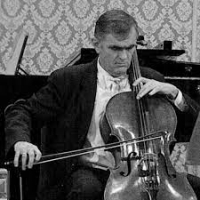
Șerban Nichifor OCB (born 25 August 1954) is a Romanian composer, cellist and music educator.Șerban Nichifor was born on 25 August 1954 to Ermil Nichifor (1916–1997) and Livia Nichifor, née Balint (1922–2017) in Bucharest, Romania. Both his parents were physicians. His father was also a musician and conductor of the Orchestra of Physicians in Bucharest.
Fariborz Lachini

He started his career in Iran writing music for children, creating "Avaz Faslha va Rangha" at the age of 18 which caught the attention of royal family of the time. The title of national Iranian TV's children programming for more than two decades, was one of his earlier works. Before Iran's Islamic Revolution, he also created music for some of Iran's pop icons.
After the Islamic Revolution he moved to Europe to study Musicology in the Universite de Paris – Sorbonne. It was then that his music became influenced by the European styles. He returned home and created one of the best loved contemporary solo piano albums of all in Iran with a unique style, a combination of Persian and European Romantic styles called "Paeez Talaee", also known as Golden Autumn, which has been the number-one seller for years in Iran and has attracted fans from all around the world
After the Islamic Revolution he moved to Europe to study Musicology in the Universite de Paris – Sorbonne. It was then that his music became influenced by the European styles. He returned home and created one of the best loved contemporary solo piano albums of all in Iran with a unique style, a combination of Persian and European Romantic styles called "Paeez Talaee", also known as Golden Autumn, which has been the number-one seller for years in Iran and has attracted fans from all around the world
Annie
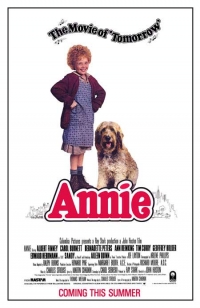
Annie is a 1982 musical film based upon the popular 1977 stage musical of the same name, with music by Charles Strouse, lyrics by Martin Charnin, and the book by Thomas Meehan. It was released in 1982 by Columbia Pictures.
The film version was directed by John Huston, and starred Carol Burnett and Albert Finney. This was Huston's first and only film musical.
The film version was directed by John Huston, and starred Carol Burnett and Albert Finney. This was Huston's first and only film musical.
Guiseppe Verdi

Giuseppe Fortunino Francesco Verdi (Italian pronunciation: ; 10 October 1813 – 27 January 1901) was an Italian Romantic composer, mainly of opera. He was one of the most influential composers of the 19th century. His works are frequently performed in opera houses throughout the world and, transcending the boundaries of the genre, some of his themes have long since taken root in popular culture - such as "La donna è mobile" from Rigoletto, "Va, pensiero" (The Chorus of the Hebrew Slaves) from Nabucco, "Libiamo ne' lieti calici" (The Drinking Song) from La traviata and the "Grand March" from Aida. Although his work was sometimes criticized for using a generally diatonic rather than a chromatic musical idiom and having a tendency toward melodrama, Verdi’s masterworks dominate the standard repertoire a century and a half after their composition.
Verdi's predecessors who influenced his music were Rossini, Bellini, Giacomo Meyerbeer and, most notably, Gaetano Donizetti and Saverio Mercadante. With the exception of Otello and Aida, he was free of Wagner's influence. Although respectful of Gounod, Verdi was careful not to learn anything from the Frenchman whom many of Verdi's contemporaries regarded as the greatest living composer. Some strains in Aida suggest at least a superficial familiarity with the works of the Russian composer Mikhail Glinka, whom Franz Liszt, after his tour of the Russian Empire as a pianist, popularized in Western Europe.
Throughout his career, Verdi rarely utilised the high C in his tenor arias, citing the fact that the opportunity to sing that particular note in front of an audience distracts the performer before and after the note appears. However, he did provide high Cs to Duprez in Jérusalem and to Tamberlick in the original version of La forza del destino. The high C often heard in the aria Di quella pira does not appear in Verdi's score.
Verdi's predecessors who influenced his music were Rossini, Bellini, Giacomo Meyerbeer and, most notably, Gaetano Donizetti and Saverio Mercadante. With the exception of Otello and Aida, he was free of Wagner's influence. Although respectful of Gounod, Verdi was careful not to learn anything from the Frenchman whom many of Verdi's contemporaries regarded as the greatest living composer. Some strains in Aida suggest at least a superficial familiarity with the works of the Russian composer Mikhail Glinka, whom Franz Liszt, after his tour of the Russian Empire as a pianist, popularized in Western Europe.
Throughout his career, Verdi rarely utilised the high C in his tenor arias, citing the fact that the opportunity to sing that particular note in front of an audience distracts the performer before and after the note appears. However, he did provide high Cs to Duprez in Jérusalem and to Tamberlick in the original version of La forza del destino. The high C often heard in the aria Di quella pira does not appear in Verdi's score.
Handel

George Frideric Handel (Friday, 23 February 1685 - Saturday, 14 April 1759) was a German-born Baroque composer who is famous for his operas, oratorios and concerti grossi. Born as Georg Friedrich Handel in Halle, he spent most of his adult life in England, becoming a subject of the British crown on 22 January 1727. His most famous works are Messiah, an oratorio set to texts from the King James Bible; Water Music; and Music for the Royal Fireworks. Strongly influenced by the techniques of the great composers of the Italian Baroque and the English composer Henry Purcell, his music was known to many significant composers who came after him, including Haydn, Mozart, and Beethoven.
Handel's compositions include 42 operas; 29 oratorios; more than 120 cantatas, trios and duets; numerous arias; chamber music; a large number of ecumenical pieces; odes and serenatas; and sixteen organ concerti. His most famous work, the Messiah oratorio with its "Hallelujah" chorus, is among the most popular works in choral music and has become a centerpiece of the Christmas season. Also popular are the Opus 3 and 6 Concerti Grossi, as well as "The Cuckoo and the Nightingale", in which birds are heard calling during passages played in different keys representing the vocal ranges of two birds. Also notable are his sixteen keyboard suites, especially The Harmonious Blacksmith.
Handel introduced various previously uncommon musical instruments in his works: the viola d'amore and violetta marina (Orlando), the lute (Ode for St. Cecilia's Day), three trombones (Saul), clarinets or small high cornets (Tamerlano), theorbo, French horn (Water Music), lyrichord, double bassoon, viola da gamba, bell chimes, positive organ, and harp (Giulio Cesare, Alexander's Feast).
Handel's compositions include 42 operas; 29 oratorios; more than 120 cantatas, trios and duets; numerous arias; chamber music; a large number of ecumenical pieces; odes and serenatas; and sixteen organ concerti. His most famous work, the Messiah oratorio with its "Hallelujah" chorus, is among the most popular works in choral music and has become a centerpiece of the Christmas season. Also popular are the Opus 3 and 6 Concerti Grossi, as well as "The Cuckoo and the Nightingale", in which birds are heard calling during passages played in different keys representing the vocal ranges of two birds. Also notable are his sixteen keyboard suites, especially The Harmonious Blacksmith.
Handel introduced various previously uncommon musical instruments in his works: the viola d'amore and violetta marina (Orlando), the lute (Ode for St. Cecilia's Day), three trombones (Saul), clarinets or small high cornets (Tamerlano), theorbo, French horn (Water Music), lyrichord, double bassoon, viola da gamba, bell chimes, positive organ, and harp (Giulio Cesare, Alexander's Feast).
Stephen Sondheim

Stephen Joshua Sondheim (born March 22, 1930) is an American composer and lyricist for stage and film. He is the winner of an Academy Award, multiple Tony Awards (nine, more than any other composer) including the Special Tony Award for Lifetime Achievement in the Theatre (received 2008), multiple Grammy Awards, and a Pulitzer Prize. He has been described as "the greatest and perhaps best-known artist in the American musical theatre." His most famous scores include (as composer/lyricist) A Funny Thing Happened on the Way to the Forum, Company, Follies, A Little Night Music, Sweeney Todd, Sunday in the Park with George, Into the Woods, and Assassins, as well as the lyrics for West Side Story and Gypsy. He was president of the Dramatists Guild from 1973 to 1981.
Gilberto Gil

Gilberto Passos Gil Moreira (born 26 June 1942), known professionally as Gilberto Gil (Brazilian Portuguese: ), is a Brazilian singer, guitarist, and songwriter, known for both his musical innovation and political activism. From 2003 to 2008, he served as Brazil's Minister of Culture in the administration of President Luiz Inácio Lula da Silva. Gil's musical style incorporates an eclectic range of influences, including rock, Brazilian genres including samba, African music, and reggae.
Hans Zimmer

Hans Florian Zimmer (born September 12, 1957) is a German film score composer and music producer. He has composed music for over 100 films, including Hollywood blockbusters such as the Pirates of the Caribbean series, Gladiator, The Lion King, The Da Vinci Code and The Dark Knight.
Zimmer spent the early part of his career in the United Kingdom before moving to the United States. He is the head of the film music division at DreamWorks studios, and works with other composers through the company which he founded, Remote Control Productions. His work is notable for integrating electronic music sounds with traditional orchestral arrangements.
Zimmer spent the early part of his career in the United Kingdom before moving to the United States. He is the head of the film music division at DreamWorks studios, and works with other composers through the company which he founded, Remote Control Productions. His work is notable for integrating electronic music sounds with traditional orchestral arrangements.
Koji Kondo

Koji Kondo (近藤浩治 Kondō Kōji?, born August 13, 1960) is a Japanese video game composer and sound director who has been employed at Nintendo since 1984. He is best known for scoring numerous titles in the Mario and The Legend of Zelda series.
Lady Gaga

Lady Gaga (born Stefani Joanne Angelina Germanotta on March 28, 1986) is an American recording artist. She began performing in the rock music scene of New York City's Lower East Side. She soon signed with Streamline Records, an imprint of Interscope Records, upon its establishment in 2007. During her early time at Interscope, she worked as a songwriter for fellow label artists and captured the attention of Akon, who recognized her vocal abilities, and had her also sign to his own label, Kon Live Distribution.
Her debut album, The Fame, was released on August 19, 2008. In addition to receiving generally positive reviews, it reached number-one in Canada, Austria, Germany, and Ireland and topped the Billboard Top Electronic Albums chart. Its first two singles, "Just Dance" and "Poker Face", co-written and co-produced with RedOne, became international number-one hits, topping the Hot 100 in the United States as well as other countries. The album later earned a total of six Grammy Award nominations and won awards for Best Electronic/Dance Album and Best Dance Recording. In early 2009, after having opened for New Kids on the Block and the Pussycat Dolls, she embarked on her first headlining tour, The Fame Ball Tour. By the fourth quarter of 2009, she released her second studio album The Fame Monster, with the global chart-topping lead single "Bad Romance", as well as having embarked on her second headlining tour of the year, The Monster Ball Tour.
Lady Gaga is inspired by glam rock musicians such as David Bowie and Freddie Mercury, as well as pop music artists such as Madonna and Michael Jackson. She has also stated fashion is a source of inspiration for her songwriting and performances. To date, she has sold over eight million albums and over thirty-five million singles worldwide.
Her debut album, The Fame, was released on August 19, 2008. In addition to receiving generally positive reviews, it reached number-one in Canada, Austria, Germany, and Ireland and topped the Billboard Top Electronic Albums chart. Its first two singles, "Just Dance" and "Poker Face", co-written and co-produced with RedOne, became international number-one hits, topping the Hot 100 in the United States as well as other countries. The album later earned a total of six Grammy Award nominations and won awards for Best Electronic/Dance Album and Best Dance Recording. In early 2009, after having opened for New Kids on the Block and the Pussycat Dolls, she embarked on her first headlining tour, The Fame Ball Tour. By the fourth quarter of 2009, she released her second studio album The Fame Monster, with the global chart-topping lead single "Bad Romance", as well as having embarked on her second headlining tour of the year, The Monster Ball Tour.
Lady Gaga is inspired by glam rock musicians such as David Bowie and Freddie Mercury, as well as pop music artists such as Madonna and Michael Jackson. She has also stated fashion is a source of inspiration for her songwriting and performances. To date, she has sold over eight million albums and over thirty-five million singles worldwide.
Fools Garden
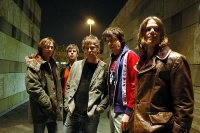
Fool's Garden is a German pop group formed in 1991, comprising singer Peter Freudenthaler, guitarist Volker Hinkel, bassist Thomas Mangold, keyboardist Roland Röhl and drummer Ralf Wochele. They debuted in 1991 with the eponymous album Fool's Garden, the next (1993) was album Once in a Blue Moon. Two years later Fool's Garden issued their second album Dish of the Day, scoring a massive European and Asian chart hit with "Lemon Tree".
Go And Ask Peggy For The Principal Thing followed in 1997, along with three albums in 2000, 2003 and 2005. In 2003 three members left the band and were replaced by Dirk Blümlein (bassist), Claus Müller (drummer) and Gabriel Holz (2nd guitarist), and the name of the band changed to Fools Garden (no apostrophe).
Gabriel Holz left the band in the middle of 2007.
Go And Ask Peggy For The Principal Thing followed in 1997, along with three albums in 2000, 2003 and 2005. In 2003 three members left the band and were replaced by Dirk Blümlein (bassist), Claus Müller (drummer) and Gabriel Holz (2nd guitarist), and the name of the band changed to Fools Garden (no apostrophe).
Gabriel Holz left the band in the middle of 2007.
Etta James

Etta James (born Jamesetta Hawkins on January 25, 1938) is an American blues, soul, R&B, rock & roll and jazz singer and songwriter. James is the winner of four Grammys, seventeen Blues Music Awards, and was inducted into the Rock & Roll Hall of Fame in 1993, the Blues Hall of Fame in 2001, and the Grammy Hall of Fame both in 1999 and 2008. In the 1950s and 60s, she had her biggest success as a blues and R&B singer. She is best known for her 1961 ballad "At Last", which has been classified as a "timeless classic" and has been featured in many movies, television commercials, and web streaming services since its release.
Pino Daniele
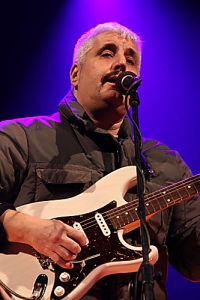
Pino Daniele (19 March 1955 – 4 January 2015) was an Italian singer-songwriter, and guitarist, whose influences covered a wide number of genres, including pop, blues, jazz, and Italian and Middle Eastern music.Daniele was born to a working-class family in Naples, his father being a harbor worker. A self-taught guitarist, he began his career as a musician playing for other successful singers of the 1970s. His debut in the Italian music world was in 1977 with the album Terra mia, which proved to be a successful mix of Neapolitan tradition and Blues sounds.
Real Book

The Real Book refers to compilations of lead sheets for jazz standards. It usually refers to the first volume of a series of books transcribed and collated by Berklee College of Music students during the 1970s.The name is derived from "fake books", so called because they contained only rough outlines of music pieces rather than fully notated scores. Early fake books were often used by professional bands who performed mostly standards, often more geared to society and dance bands rather than jazz ensembles, and devoted much space to show tunes, novelty tunes, traditional jazz, etc. The first three Real Book volumes, in contrast, contained many bebop and other jazz standards that were likely to be encountered on jazz gigs at the time. For this reason, the books were quickly adopted among jazz players in the 1970s, particularly on the east coast.
Kenny Garrett
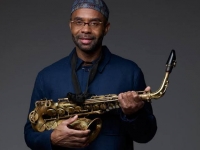
Kenny Garrett is a Grammy Award-winning American post-bop jazz saxophonist and flautist who gained recognition in his youth as a member of the Duke Ellington Orchestra and of Miles Davis's band. Since then, he has pursued a solo career
Ozzy Osbourne

John Michael "Ozzy" Osbourne (born December 3, 1948) is an English singer. Referred to by many as the "Godfather of Heavy Metal", Osbourne's career has now spanned four decades. He rose to prominence as lead vocalist of pioneering English heavy metal band Black Sabbath, and eventually achieved a multi-platinum, award-winning solo career. In the early 2000s, his career as a celebrity revived when he became a star in his own reality show, The Osbournes (alongside wife/manager Sharon and children Kelly and Jack). In August 2008, Osbourne stated in USA Today that he intends to retire from his music career after two more albums.
Pixinguinha
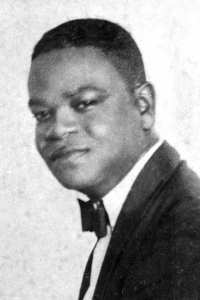
Alfredo da Rocha Viana Filho, known as Pixinguinha (Portuguese: ; April 23, 1897 – February 17, 1973) was a Brazilian composer, arranger, flautist and saxophonist born in Rio de Janeiro. Pixinguinha is considered one of the greatest Brazilian composers of popular music, particularly within the genre of music known as choro. By integrating the music of the older choro composers of the 19th century with contemporary jazz-like harmonies, Afro-Brazilian rhythms, and sophisticated arrangements, he introduced choro to a new audience and helped to popularize it as a uniquely Brazilian genre.
Asa Hull
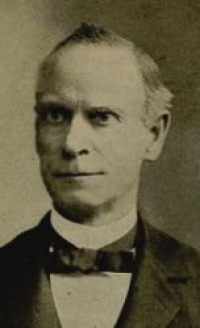
Asa Hull USA 1828-1907. Born in Keene, NY, he became a music publisher in New York City. He married Emma F Atherton, and they had a daughter, Harriett. He wrote many tunes and authored temperance rallying songs. He published 33 works, of which 21 were songbooks, between 1863-1895. He died in Philadelphia, PA.
Kumiko Noma

opera singer Kumiko Noma and is sung in Latin and Greek, with lyrics extracted from biblical passages,The anime's opening theme song is "Lilium" performed
Chopin

Frédéric Chopin (1 March 1810 – 17 October 1849) was a Polish composer and virtuoso pianist of the Romantic period. He is widely regarded as the greatest Polish composer, and ranks as one of music's greatest tone poets.
He was born in the village of Żelazowa Wola, in the Duchy of Warsaw, to a Polish mother and French-expatriate father, and in his early life was regarded as a child-prodigy pianist. In November 1830, at the age of 20, Chopin went abroad; following the suppression of the Polish November Uprising of 1830–31, he became one of many expatriates of the Polish "Great Emigration."
In Paris, he made a comfortable living as a composer and piano teacher, while giving few public performances. A Polish patriot,
Chopin's extant compositions were written primarily for the piano as a solo instrument. Though technically demanding, Chopin's style emphasizes nuance and expressive depth rather than virtuosity. Chopin invented musical forms such as the ballade and was responsible for major innovations in forms such as the piano sonata, waltz, nocturne, étude, impromptu and prelude. His works are mainstays of Romanticism in 19th-century classical music.
He was born in the village of Żelazowa Wola, in the Duchy of Warsaw, to a Polish mother and French-expatriate father, and in his early life was regarded as a child-prodigy pianist. In November 1830, at the age of 20, Chopin went abroad; following the suppression of the Polish November Uprising of 1830–31, he became one of many expatriates of the Polish "Great Emigration."
In Paris, he made a comfortable living as a composer and piano teacher, while giving few public performances. A Polish patriot,
Chopin's extant compositions were written primarily for the piano as a solo instrument. Though technically demanding, Chopin's style emphasizes nuance and expressive depth rather than virtuosity. Chopin invented musical forms such as the ballade and was responsible for major innovations in forms such as the piano sonata, waltz, nocturne, étude, impromptu and prelude. His works are mainstays of Romanticism in 19th-century classical music.
Final Fantasy
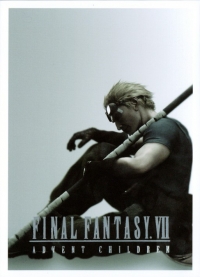
Final Fantasy (ファイナルファンタジー?) is a media franchise created by Hironobu Sakaguchi, and is developed and owned by Square Enix (formerly Squaresoft). The franchise centers on a series of fantasy and science-fantasy console role-playing games (RPGs), but includes motion pictures, anime, printed media, and other merchandise. The series began in 1987 as an eponymous video game developed to save Square from bankruptcy; the game was a success and spawned sequels. The video game series has since branched into other genres such as tactical role-playing, action role-playing, massively multiplayer online role-playing, and racing.
Although most Final Fantasy installments are independent stories with various different settings and main characters, they feature common elements that define the franchise. Such recurring elements include plot themes, character names, and game mechanics. Plots center on a group of heroes battling a great evil while exploring the characters' internal struggles and relationships. Character names are often derived from the history, languages, and mythologies of cultures worldwide.
The series has been commercially and critically successful; it is Square Enix's best selling video game franchise, with more than 85 million units sold, and one of the best-selling video game franchises. It was awarded a star on the Walk of Game in 2006, and holds seven Guinness World Records in the Guinness World Records Gamer's Edition 2008. The series is well known for its innovation, visuals, and music, such as the inclusion of full motion videos, photo-realistic character models, and orchestrated music by Nobuo Uematsu. Final Fantasy has been a driving force in the video game industry. The video game series has affected Square's business practices and its relationships with other video game developers. It has also introduced many features now common in console RPGs and has been credited with helping to popularize RPGs in markets outside Japan.
Although most Final Fantasy installments are independent stories with various different settings and main characters, they feature common elements that define the franchise. Such recurring elements include plot themes, character names, and game mechanics. Plots center on a group of heroes battling a great evil while exploring the characters' internal struggles and relationships. Character names are often derived from the history, languages, and mythologies of cultures worldwide.
The series has been commercially and critically successful; it is Square Enix's best selling video game franchise, with more than 85 million units sold, and one of the best-selling video game franchises. It was awarded a star on the Walk of Game in 2006, and holds seven Guinness World Records in the Guinness World Records Gamer's Edition 2008. The series is well known for its innovation, visuals, and music, such as the inclusion of full motion videos, photo-realistic character models, and orchestrated music by Nobuo Uematsu. Final Fantasy has been a driving force in the video game industry. The video game series has affected Square's business practices and its relationships with other video game developers. It has also introduced many features now common in console RPGs and has been credited with helping to popularize RPGs in markets outside Japan.
Yiruma

Yiruma (born February 15 1978, Seoul, Korea) is a South Korean piano music composer. He is married to Son Hye-im.
Yiruma is well-known throughout the world, and his albums are sold all over Asia, as well as the United States and Europe. His most famous pieces are "Kiss the Rain", and also "River Flows in You". These pieces are widely mistaken for being associated with the movie Twilight. Although he formerly held dual citizenship as a citizen of the United Kingdom and South Korea, in July 2006 he gave up his British citizenship and entered the Republic of Korea Navy to begin his military service, which is compulsory for all male South Koreans. He has lived in Osaka, Japan for 5 years to promote album sales before giving up his dual citizenship.
Yiruma is well-known throughout the world, and his albums are sold all over Asia, as well as the United States and Europe. His most famous pieces are "Kiss the Rain", and also "River Flows in You". These pieces are widely mistaken for being associated with the movie Twilight. Although he formerly held dual citizenship as a citizen of the United Kingdom and South Korea, in July 2006 he gave up his British citizenship and entered the Republic of Korea Navy to begin his military service, which is compulsory for all male South Koreans. He has lived in Osaka, Japan for 5 years to promote album sales before giving up his dual citizenship.
Sweeney Todd
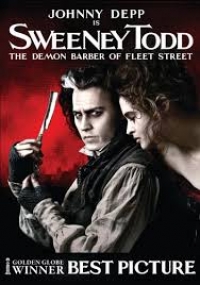
Sweeney Todd: The Demon Barber of Fleet Street (also known simply as Sweeney Todd) is a 2007 musical slasher film directed by Tim Burton and an adaptation of Stephen Sondheim and Hugh Wheeler's Tony Award-winning 1979 musical of the same name.The film retells the Victorian melodramatic tale of Sweeney Todd, an English barber and serial killer who murders his customers with a straight razor and, with the help of his accomplice, Mrs. Lovett, processes their corpses into meat pies. The film stars Johnny Depp as the title character and Helena Bonham Carter as Mrs. Lovett.
ZUN

ZUN" and is the main programmer, scriptwriter, graphic artist, and music composer. His real name is Jun'ya Ōta
Jonathan Reid Gealt

Jonathan Reid Gealt was born in Glens Falls Hospital and grew up in the small upstate town of Queensbury, New York. He attended the Boston Conservatory and graduated with a Bachelor of Fine Arts in Musical Theater Performance, having a dual emphasis in both dance and composition.
Rowy van hest

classically trained composer and teacher of music theory and composition. As a teacher I have written books on music composition and harmony. As a composer I am inspired by nature and films about nature.
Ludovico Einaudi

Ludovico Einaudi (born 23 November 1955) is an Italian contemporary classical music composer and pianist.
Although Einaudi would prefer not to be labeled as any particular type of genre, he is sometimes referred to as Minimalist. This is despite his music not sharing the key musical properties associated with minimalism. This may be due to his music possessing sparse orchestration and simplistic melodies that some may wish to refer to as 'minimalist' despite not belonging to the musical movement of Minimalism.
Einaudi's own words on the matter reflect this viewpoint, with Einaudi referring to Minimalism as "elegance and openness", despite its more formal definition as a musical movement to which he arguably does not belong.
Although Einaudi would prefer not to be labeled as any particular type of genre, he is sometimes referred to as Minimalist. This is despite his music not sharing the key musical properties associated with minimalism. This may be due to his music possessing sparse orchestration and simplistic melodies that some may wish to refer to as 'minimalist' despite not belonging to the musical movement of Minimalism.
Einaudi's own words on the matter reflect this viewpoint, with Einaudi referring to Minimalism as "elegance and openness", despite its more formal definition as a musical movement to which he arguably does not belong.
Yann Tiersen

Guillaume Yann Tiersen (born 23 June 1970) is a French musician and composer known internationally for composing the score to the Jean-Pierre Jeunet movie Amélie. His music is recognized by its use of a large variety of instruments in relatively minimalist compositions, often with a touch of either European classical music or French folk music, using primarily the piano, accordion or violin together with instruments like the melodica, xylophone, toy piano, ondes martenot, harpsichord and typewriter. His musical style is reminiscent of Frédéric Chopin, Erik Satie, Philip Glass and Michael Nyman.
Danniel Balavoine
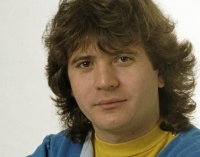
Daniel Balavoine, French singer and songwriter. Well-known in French-speaking countries, Balavoine came to the forefront in the 1980s, influencing artists such as Jean-Jacques Goldman and Michel Berger.
Chick Corea

Armando Anthony "Chick" Corea (born June 12, 1941) is a multiple Grammy Award-winning American jazz pianist, keyboardist, drummer, and composer.
He is known for his work during the 1970s in the genre of jazz fusion. He participated in the birth of the electric fusion movement as a member of Miles Davis' band in the 1960s, and in the 1970s formed Return to Forever.
He continued to pursue other collaborations and explore various musical styles throughout the 1980s and 1990s. He is also known for promoting Scientology.
He is known for his work during the 1970s in the genre of jazz fusion. He participated in the birth of the electric fusion movement as a member of Miles Davis' band in the 1960s, and in the 1970s formed Return to Forever.
He continued to pursue other collaborations and explore various musical styles throughout the 1980s and 1990s. He is also known for promoting Scientology.
Marco Borsato
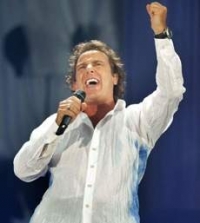
Marco Roberto Borsato (born December 21, 1966) is a popular Dutch singer, previously performing in Italian only to be recognised by the mainstream public when switching to Dutch in 1994. He is married to Leontine Ruiters and has three children.
Marco debuted as a singer after he won the Dutch Soundmixshow programme on April 7, 1990 with his rendition of the song At This Moment by Billy Vera.
He had three albums in Italian and became popular with a larger audience when he brought out a Dutch-language album and the single "Dromen Zijn Bedrog" reached number one in the Dutch charts.
Many of his songs are actually Dutch covers or adaptations of Italian songs, (for example by Riccardo Fogli, Giorgia, Riccardo Cocciante and Zucchero). In particular, he had quite a success with an adaptation of Margherita by Riccardo Cocciante.
Marco debuted as a singer after he won the Dutch Soundmixshow programme on April 7, 1990 with his rendition of the song At This Moment by Billy Vera.
He had three albums in Italian and became popular with a larger audience when he brought out a Dutch-language album and the single "Dromen Zijn Bedrog" reached number one in the Dutch charts.
Many of his songs are actually Dutch covers or adaptations of Italian songs, (for example by Riccardo Fogli, Giorgia, Riccardo Cocciante and Zucchero). In particular, he had quite a success with an adaptation of Margherita by Riccardo Cocciante.
Johann Strauss Jr.
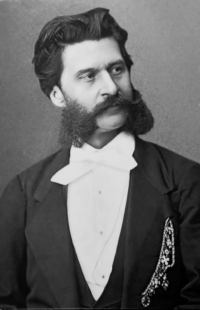
Johann Strauss II (born Johann Baptist Strauss; 25 October 1825 – 3 June 1899), also known as Johann Strauss Jr., the Younger, the Son (German: Sohn), son of Johann Strauss I, was an Austrian composer of light music, particularly dance music and operettas. He composed over 500 waltzes, polkas, quadrilles, and other types of dance music, as well as several operettas and a ballet. In his lifetime, he was known as "The Waltz King", and was largely responsible for the popularity of the waltz in Vienna during the 19th century. Some of Johann Strauss's most famous works include "The Blue Danube", "Kaiser-Walzer" (Emperor Waltz), "Tales from the Vienna Woods", and the "Tritsch-Tratsch-Polka". Among his operettas, Die Fledermaus and Der Zigeunerbaron are the best known.
 Sheet Music Max is a site for those who wants to access popular sheet music easily,
letting them download the sheet music for free for trial purposes.
It's completely free to download and try the listed sheet music, but you have to delete the files after 24 hours of trial.
Don't forget, if you like the piece of music you have just learned playing,
treat the artist with respect, and go buy the original sheet music.
Sheet Music Max is a site for those who wants to access popular sheet music easily,
letting them download the sheet music for free for trial purposes.
It's completely free to download and try the listed sheet music, but you have to delete the files after 24 hours of trial.
Don't forget, if you like the piece of music you have just learned playing,
treat the artist with respect, and go buy the original sheet music.
